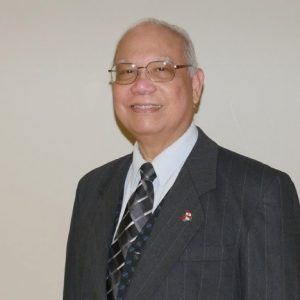Teachers’ group help kababayans with licensing
Teachers’ group help kababayans with licensing

Cielito Drapeza, OCT (standing, fourth from right) is the current president of the Philippine Teachers Association of Canada. (Photo supplied)
SPECIAL REPORT: DEPROFESSIONALIZATION OF IMMIGRANTS
August 9, 2021
By Veronica Silva Cusi
The Philippine Reporter
Like other internationally trained or education professional (ITP/IEP) immigrants, kababayan-teachers from the Philippines are facing challenges in getting their foreign credentials recognized in Canada.
When it comes to teaching licensing, officials of the Philippine Teachers Association of Canada (PTAC) said they are in a position to help kababayans trained and licensed in the Philippines to get a chance to practice here in Canada.
PTAC is a professional group of Filipino teachers who are licensed either or both in the Philippines and Canada. They also have retired certified teacher-members who are helping newcomers, including former caregivers and personal support workers (PSWs), interested to pursue the same profession here in Canada.

Tony San Juan, OCT-retired, was PTAC president from 2009-2011 and currently serves in the board.
Retired Ontario certified teacher Antonio “Tony” San Juan, past PTAC president and currently board member, said kababayans can get help from the self-regulatory Ontario College of Teachers (OCT).
But some Philippine and Canadian government agencies and settlement or newcomer agencies may not have information on best practices and certification policy changes relevant to individual cases, said San Juan.
He said PTAC has made representations and submissions to the OCT and help their members understand the certification process in the province. PTAC has also reached out to school boards to orient them about teacher training in the Philippines.
For example, PTAC helps Philippine-educated and -licensed teachers hurdle the education requirement in Canadian licensing, particularly since the old Philippine education system lacked two years – Grades 11 and 12 — of basic education.
This is clear in Alberta where the International Qualifications Assessment Service (IQAS) asserts that “the ten-year secondary school system from the Philippines is not considered, by itself, sufficient preparation for undergraduate studies in Canada.”
The Philippines only recently enabled the K-12 program with the passing of Enhanced Basic Education Act of 2013, or Republic Act 10533, which added Grades 11 and 12 in the basic curriculum.
San Juan said some Filipino teachers licensed in the Philippines are assessed to be lacking in credits or units to get certified. However, a master’s degree can make up for the mising two years in basic education.
“Some caregivers [and PSWs] don’t know the procedures and don’t have the proper guidance,” said San Juan, adding another fact that some kababayans might not be aware of: OCT also welcomes applicants residing outside of Canada.
Almost 50 per cent of PTAC members are former or current caregiver or PSWs who are pursuing certification in Canada, said San Juan. PTAC gives them guidance so that they don’t get disappointed and overwhelmed on the process, including the education equivalency.
PTAC also updates its members on policy changes that might affect their certification.
PTAC president Cielito Drapeza said newcomers find the certification process in Canada “challenging” such that they don’t know what steps to take. Many are also not aware of policy changes.
For example, the OCT now requires teachers wanting to get certified to “have completed a minimum three-year postsecondary degree from an acceptable postsecondary institution [and] have successfully completed a four-semester teacher education program.”
Prior to September 2015, the requirement was only for two semesters of teacher education. There are also now more practicum days – 80 days from the previous 40.
One way their membership can stay up to date on new policies is they invite OCT officials during PTAC’s annual fall conference, said Drapez. But as with most individuals, businesses, and groups, organizing events has not been easy during the pandemic.
But kababayans in Canada also need to be updated on policy changes in the Philippines, said Drapeza. For example, some teachers licensed in the Philippines are confused on how they are going to get their proof of certification.
The OCT requires a Statement of Professional Standing from either the Philippine Professional Regulation Commission or the Civil Service Commission. However, some PTAC members don’t know if they still need to update their professional status in the Philippines even after they have left the country for some years already, said Drapeza on examples of dilemmas that Filipino newcomers experience.
Comments (0)